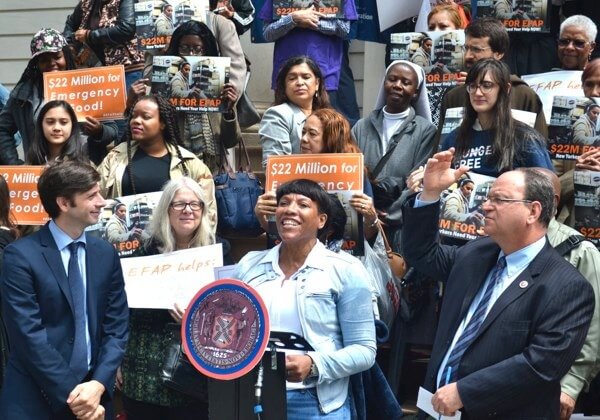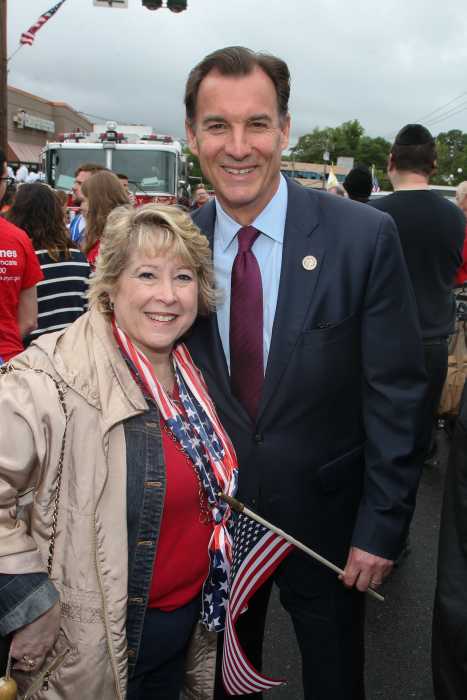By Bill Parry
Lillian Hopkins is worried about her food pantry in South Ozone Park, as well as others around the borough, in the face of federal budget cuts proposed by the Trump administration.
The budget includes $193 billion in cuts over the next decade to the Supplemental Nutrition Assistance Program nationwide, meaning more hungry people will turn towards pantries like the one at the Crossover Baptist Church Community Outreach, where the shelves are already bare.
“The amount of food availability has decreased substantially in the last year and we run out every single Friday, turning dozens away,” Hopkins said. “We’re supposed to be able to feed our people three meals a day meals for three days a week. These folks need food. They need protein like meats, beans, grains like oatmeal and rice, and some days all we have is grapefruit and cranberry juice on the shelves.”
Hopkins was startled to see Mayor Bill de Blasio’s current executive budget cut funding for the Emergency Food Assistance Program by $4.9 million compared to last year.
“I believe if the mayor doesn’t restore full funding, it will wipe us out as well as many of the other pantries and soup kitchens around the borough,” Hopkins said. “We get donations from our congregation to help with the small things, but soon they won’t be able to donate anything at all.”
With the food crisis deepening in Queens, where 13 percent of residents are food insecure and a staggering 19.5 percent of children are also food insecure, Hopkins joined City Councilman Barry Grodenchik (D-Oakland Gardens) on the steps of City Hall May 24 to urge the mayor to restore full funding to the emergency food program.
“New York City is one of the wealthiest cities in the world, yet one in five children rely on soup kitchens and food pantries,” Grodenchik said. “I am disappointed to learn that for a second year in a row, the budget is going backwards instead of forwards on funding to address the issue of hunger. Ensuring that all New Yorkers receive nutritious and high-quality foods should be a top priority. The mayor proposes spending just $1.29 a New Yorker (per year) on emergency food — we can and must do better. It’s critical that the city provide the necessary $22 million to the Emergency Food Assistance Program to help alleviate the hunger being felt by too many hardworking New Yorkers.”
To ram home the point, Grodenchik fired off a letter to the mayor, citing the loss of more than 161 million meals annually for new Yorkers since the 2013 federal cuts to SNAP benefits. The letter urged the mayor to include $22 million in critical baseline funding for emergency food in the 2018 budget and was co-signed by every member of the City Council.
“We’re negotiating with the Council, but it’s based on determining what that number is,” de Blasio said. “We’ve never failed to meet that number, and we would do it again. The city of New York, and particularly my administration, every single year has produced the resources vs. the federal government that is doing something that could affect up to 1.7 million New Yorkers negatively.”
Reach reporter Bill Parry by e-mail at bparr



































